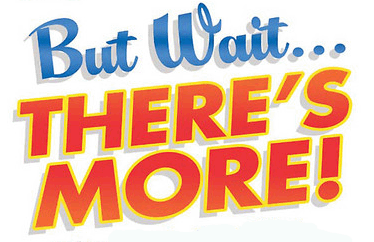I have cried every day for over a year. Every quiet time, every women’s prayer
meeting, every church service, driving in the car, sitting in my office,
walking across campus between classes.
Suffice it to say, the subject of my sorrow is a “big waily deal.” And I have been the big wailer.
The poet of Psalm 119 was no stranger to depression. He says, “I am laid low in the dust… My soul
is weary with sorrow” (v. 25, 28) and again, “I have suffered much… Look upon
my suffering and deliver me” (v. 107, 153).
Often, despite relentless prayers, we fail to see any response from
God. How can He be so slow? “My soul
faints with longing for your salvation… My eyes fail, looking for your promise…
HOW LONG MUST YOUR SERVANT WAIT???” (81, 82, 84, caps and extra punctuation
added). The Apostle Peter tells us that God “is NOT slow in keeping his promise, as some understand slowness.” (2 Pet. 3:9, caps added). What appears to be slowness is actually God’s patience. Grief must do its work in our hearts. Jesus said, “Blessed are those who mourn, for they will be comforted.” (Matt. 5:4). The psalmist also holds up the promise of an end to mourning: “May your unfailing love be my comfort, according to your promise to your servant.” (76).
I readily admit that grief has been good for my prayer life;
it forces me to seek God as the source of all comfort. In fact, the psalmist writes this
hum-dinger: “It was good for me to be
afflicted, so that I might learn your decrees.”
(v. 71). Good? Good??
GOOD??? Yet, even as I shout
“No!” -- I can see God bending my proud heart toward his holy and mysterious
will. I can feel him stretching my
compassion for brothers and sisters in hurt.
“I know, O Lord, that your laws are righteous, and in faithfulness you
have afflicted me.” (75). Is it YOU, Lord? Are YOU behind this terrible affliction? And can it truly be a sign of Your
“faithfulness”?
This past week it hit me that I have been in mourning
(duh). And it also hit me that this
severe grief must somehow end, if I am to embrace the life God has given to
me. As the wise man of Ecclesiastes
said, “There is a time for everything…a time to weep and a time to laugh, a
time to mourn and a time to dance” (Ecc. 3:1,4). We remember the command to “Rejoice in the
Lord always. I will say it again:
Rejoice!” (Phil. 4:4). And… we feel guilty.
My dear friend texted me, “PleaSe please please don’t feel
you need to apologize to me [for wailing].
I haven’t been through this exact thing but I definitely know that
juxtaposition of having a stone in your heart, sometimes right next to a flying
bird. Joy and horror.” I liked her analogy so much. Half of our heart wants to fly, knows it needs
to fly, but the other half sinks solidly into the mud. The tension threatens to shred our fragile
faith.
The psalmist has somehow made peace with the bird and the
stone. (It is a very long psalm, after
all). Relentless wailing and relentless rejoicing,
one after the other, down through the alphabet.
·
“I rejoice in following your statutes as one
rejoices in great riches… Your statutes are my delight… I rejoice in your
promise like one who finds great spoil” (14, 24, 162).
·
“I run in the path of your commands, for you
have set my heart free… I will walk about in freedom, for I have sought out
your precepts.” (32, 45).
·
“…for I delight in your commands because I love
them. I lift up my hands to your
commands, which I love…” (47).
·
“Seven times a day I praise you for your
righteous laws. Great peace have they
who love your law, and nothing can make them stumble.” (164-65).
Rejoicing, riches, delight, freedom, love, praise,
peace. All in the context of God’s
statutes, promises, commands, precepts and laws. Affliction draws us back to God’s law, which
is our salvation, and our joy. On this
rainy Sunday, I am praying with the psalmist:
“May your unfailing love be my comfort, according to your promise to
your servant.” (76). May you also find comfort in your
afflictions.





